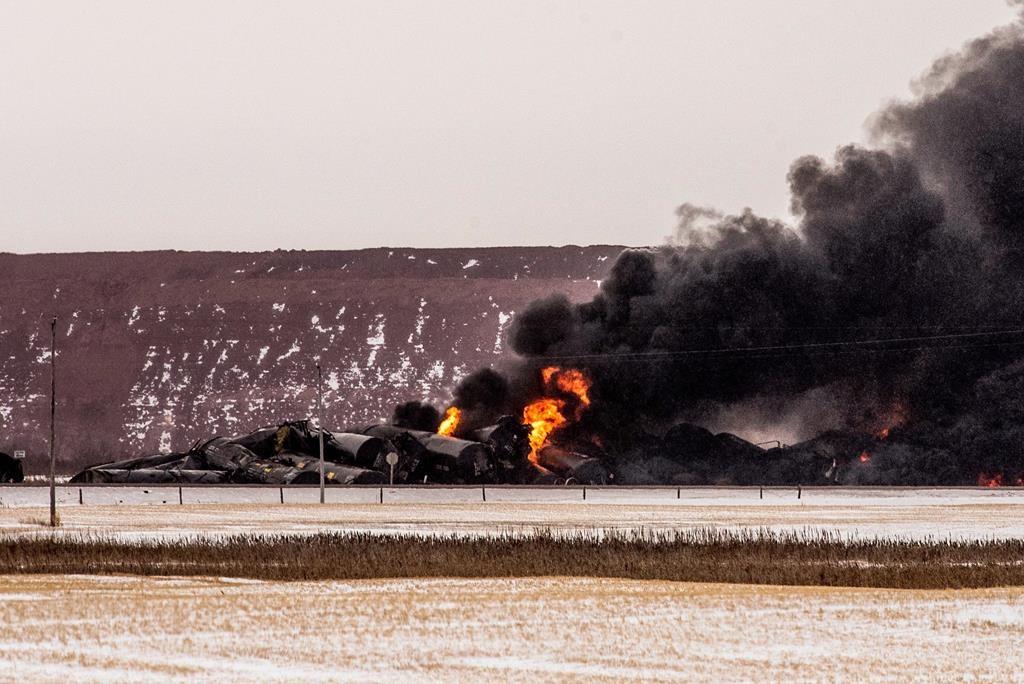OTTAWA—Transport Minister Marc Garneau is easing speed restrictions placed on certain trains following a derailment in Saskatchewan earlier this month that spilled 1.2 million litres of crude oil and started a massive fire.
Garneau says the move is the result of close collaboration between government officials and rail companies to determine the reasons for derailments such as the one near Guernsey, Sask., and address the areas of greatest concern.





